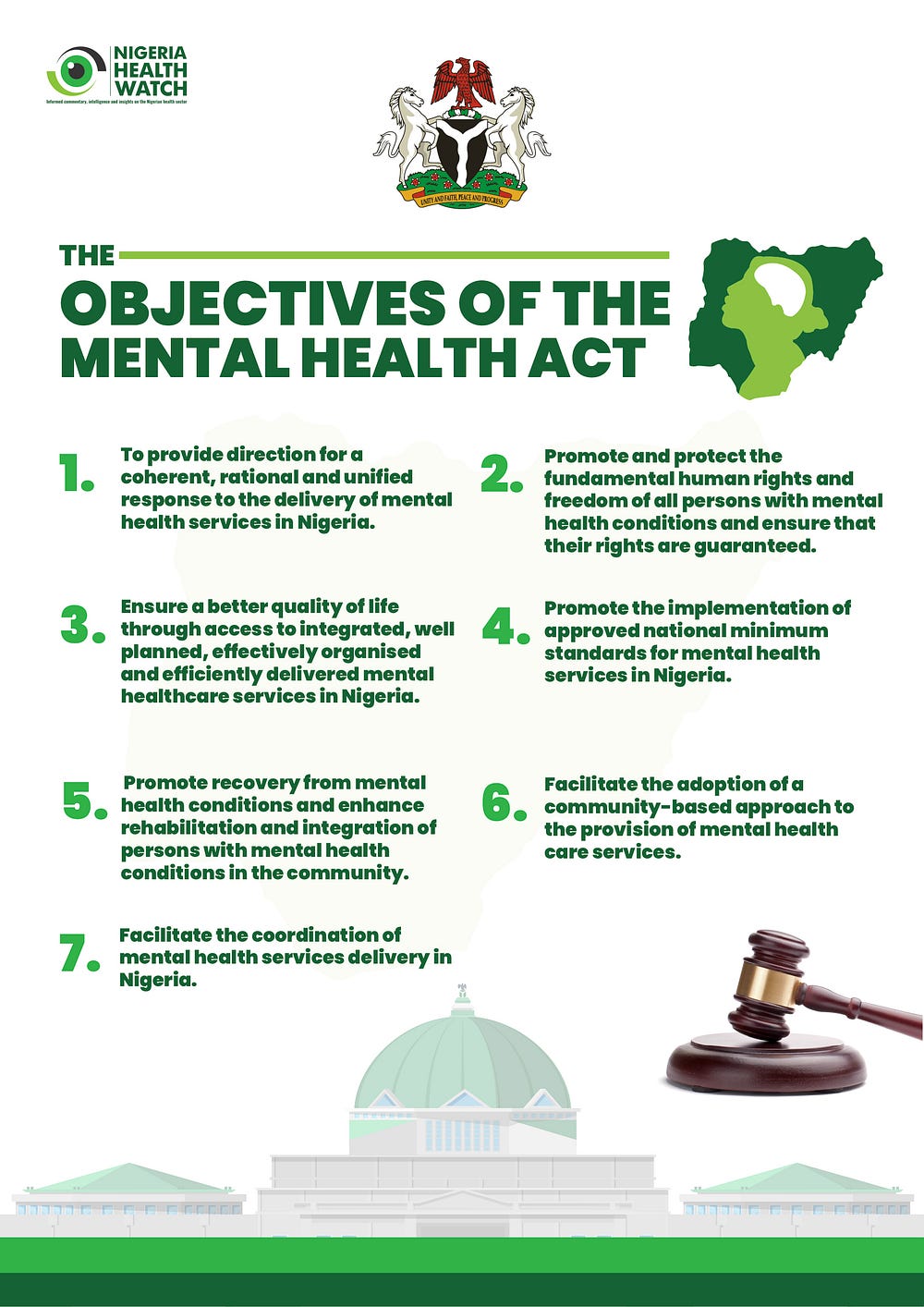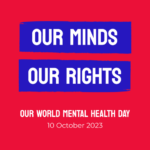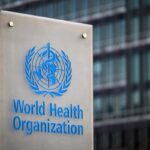Mental Health Challenges in Nigeria: Funding, Stigma, and Brain Drain – An Expert’s Perspective

The World Health Organization (WHO) has consistently emphasized the critical importance of mental health, making it a global concern for the past three years through their World Mental Health Day themes. In 2021, the WHO drew attention to the impact of the COVID-19 pandemic on mental health, urging governments worldwide to expand high-quality mental health services. The theme “Mental health care for all: let’s make it a reality” set the tone for renewed efforts to safeguard and enhance mental well-being.
The following year, the theme “Make mental health & well-being for all a global priority” propelled ongoing efforts to prioritize mental health on the global stage. Now, in 2023, under the theme “Mental Health is a Universal Human Right,” the world stands united in advocating for mental health as an essential human right.

In-Depth Interview with Dr. Olufemi Oluwatayo
To gain insights into the state of mental health in Nigeria and the challenges it faces, Good Health Weekly spoke with Dr. Olufemi Oluwatayo. Dr. Oluwatayo, a Consultant Psychiatrist and Fellow of the Royal College of Psychiatrists, serves as the Chief Executive Officer of Retreat Healthcare in Ikorodu, Lagos. Having previously worked as a Consultant and Medical Director at Lakeside Hospital, UK, he offered valuable insights into the obstacles hindering mental health services in Nigeria.
Inadequate Funding and Its Implications
Dr. Oluwatayo acknowledged that significant strides have been made in the past decade to improve mental health services in Nigeria. Many federal and state teaching hospitals, as well as federal medical centers, now have functional psychiatry departments, supplemented by provisions in numerous general hospitals. Private sector providers and charitable organizations, such as The Retreat Healthcare, have also played a crucial role in filling the gap.
However, Dr. Oluwatayo emphasized that inadequate funding, stigma, and the brain drain phenomenon continue to pose formidable obstacles to the delivery of mental health services in Nigeria. Insufficient funding remains a pivotal issue, as government commitments to mental health funding fall far short of the required levels. Dr. Oluwatayo stressed the need for funding not only from government sources but also from multinational organizations, NGOs, and the private sector to subsidize services, making them affordable for the average Nigerian.
The Brain Drain Challenge
The brain drain, affecting various sectors in Nigeria, including healthcare, has taken its toll on mental health services. Psychiatrists, mental health nurses, and clinical psychologists have left the country, depleting already scarce resources. While strategies are being explored to reverse this trend, it remains a complex challenge influenced by factors like insecurity and adverse economic conditions.
Impact of Insecurity and Violence
Dr. Oluwatayo pointed out that the surge in insecurity and violence in Nigeria has profound implications for mental health. The constant worry of becoming a victim of violence induces stress, which can trigger relapses in individuals with underlying mental disorders. Witnessing or experiencing violence can lead to acute stress reactions and, in the long term, post-traumatic stress disorder (PTSD). Moreover, these security concerns have prompted significant emigration among the middle class, exacerbating manpower shortages in the mental health sector.
Rising Suicide Rates
The concerning rise in reported suicide cases in Nigeria reflects a worrisome trend. Dr. Oluwatayo highlighted the role of common mental disorders, economic hardships, copycat suicides fueled by media reporting, and self-harm behaviors influenced by social media and Western cultures. Addressing this issue requires a national suicide strategy, responsible media reporting, economic improvements, early detection, and treatment of mental disorders, as well as targeted interventions for youth and substance abuse prevention.
Depression and Stigma
Depression and common mental disorders impact millions of Nigerians, but resources remain inadequate, with stigma remaining a significant barrier. As Nigeria marks World Mental Day 2023, Dr. Oluwatayo stressed the importance of renewed commitments from governments and increased attention to mental health.
Mental Health as a Universal Human Right
A lack of knowledge and understanding of mental disorders often leads to ignorance, superstitions, discrimination, and abuse against those with mental health issues. Dr. Oluwatayo emphasized the importance of treating people with mental disorders with respect, dignity, and as equals. Protecting their universal human rights is a shared responsibility.
Integration of Mental Health Services
Integration of mental health services into mainstream healthcare in Nigeria remains inadequate, with a lack of parity of esteem. Historical factors, including stigma and lack of understanding, have contributed to this separation. However, ongoing efforts aim to integrate mental health into primary healthcare and mainstream services.
Implementation of Mental Health Law
Dr. Oluwatayo expressed gratitude for the Mental Health Bill’s passage by the Buhari administration. Despite imperfections, the comprehensive document sets the agenda for mental health services in Nigeria, safeguarding the rights of people with severe mental disorders, their families, and practitioners. Its implementation is a vital step forward, with preparations underway.
Addressing the Shortage of Mental Health Professionals
The critical shortage of mental health professionals, including psychiatrists, challenges Nigeria. Dr. Oluwatayo suggested innovative solutions, including training middle-grade professionals to fill the gap, with involvement from private healthcare providers like The Retreat Healthcare.
Affordability of Treatment
Long-term mental health treatments pose affordability challenges for many Nigerians, making inclusion in health insurance packages essential. Dr. Oluwatayo highlighted the need for subsidized services, as government hospitals alone cannot meet these needs.
Understanding Causative Factors
Mental disorders have complex causes, from genetics to stress, substance abuse, and early life traumas. Prevention through lifestyle choices, such as avoiding substance use, adequate sleep, exercise, nurturing healthy relationships, and altruism, can promote better mental health.
Personal Experience and Outlook
As the CEO of The Retreat Healthcare, Dr. Oluwatayo noted increasing awareness of mental disorders, though challenges persist. His primary concern is the emigration of mental health professionals, which hinders progress. The shortage of psychiatrists remains significant, with the recommended ratio of one psychiatrist per 10,000 people rarely achieved. Innovative approaches are needed to address this challenge and improve mental health services.
As Nigeria observes World Mental Day 2023, the nation faces ongoing challenges in the mental health sector. Adequate funding, destigmatization, and retaining mental health professionals are key steps to addressing these issues. Mental health’s recognition as a universal human right remains a critical goal, with the implementation of mental health laws and integration into mainstream healthcare systems representing positive strides toward a brighter future for mental health in Nigeria.




